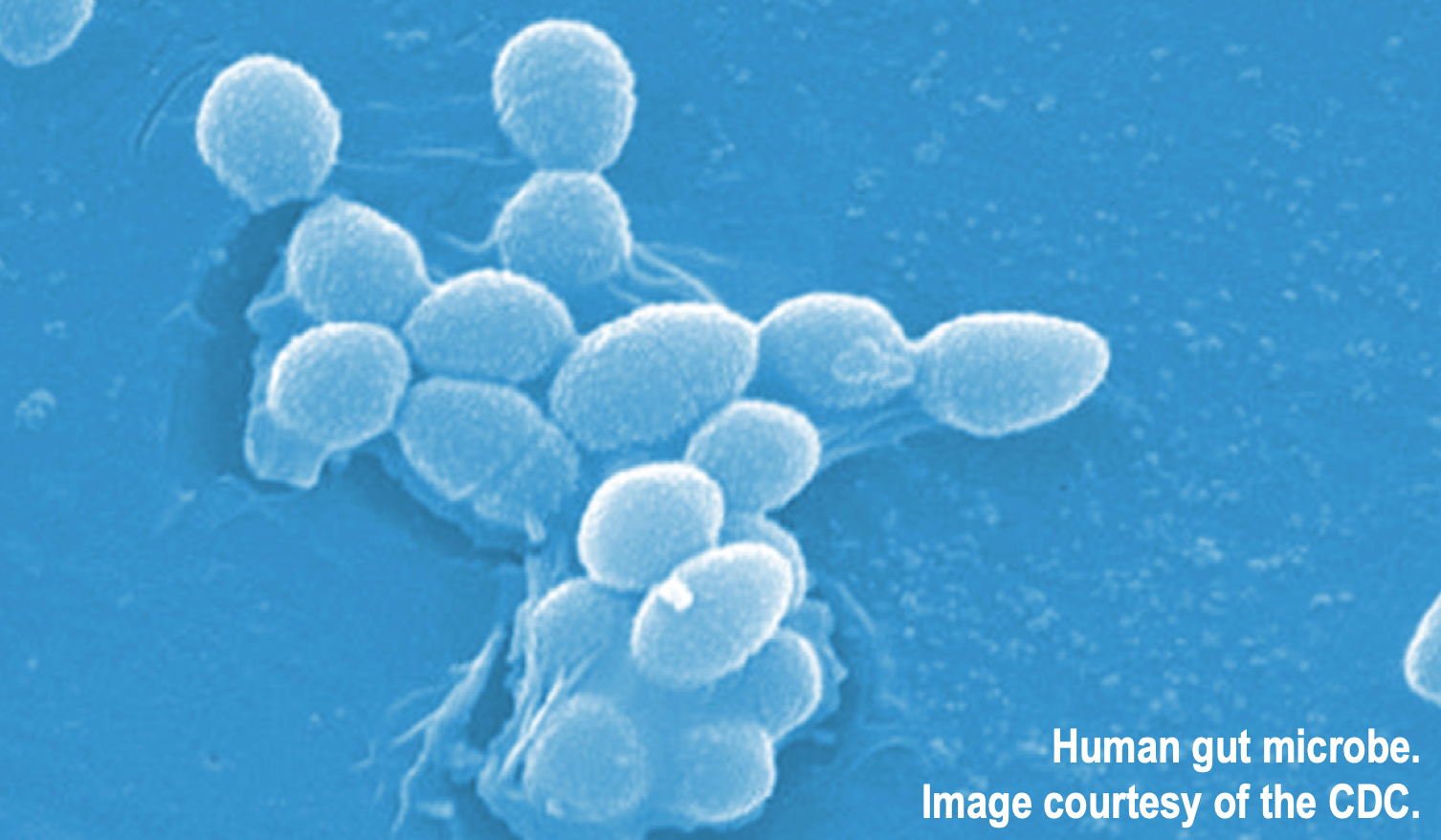What is the gut microbiome and why is it important?
The term “gut microbiome” has become more spoken of over the last couple of years in the health care sector and has become a focal point for many health care practitioners. You may have heard it and wondered “what is it” or “what does it do to me”. Below I will answer these questions and give you tips on how to take care of your gut microbiome.
The microbiome is the genetic material of all the microbes - bacteria, fungi, protozoa and viruses - that live on and inside the human body[1]. They have been around since the beginning of time and their story is one of the creation of life. They live in your digestive tract, skin, eyes, airways, blood, mouth and vaginal tract.
In fact, there are more bacterial cells in your body than human cells. There are roughly 40 trillion bacterial cells in your body and only 30 trillion human cells. That basically means you are more bacteria than human[2].
The gut microbiome is often referred as the microbiota and you have 10 times more bacteria in your gut than you have cells in your body, which may weigh as much as 2 kg[3].
The gut microbiome functions much like an organ and acts as a major part of the immune system. It helps you digest your food, protects you from other microbial or parasitic diseases, influences the effects of drugs, affects whether you are fat or thin, influences your nutritional status and in general your overall health. As you see your gut microbiome plays many key roles and makes sure your body is functioning well.
Your gut microbiome is like a fingerprint -
it’s quite unique and varies from person to person.
How is your gut microbiome created?
Your digestive tract is almost sterile until birth. You first come into contact with microbes as you slide down the birthing canal. You are then as a baby subsequently exposed to bacteria in breastmilk, formula and basically anything that a baby can put into hers/his mouth (toys, hands, toes etc.) As you grow up and start being introduced to the world of solid foods, you begin developing a balance of microbiota more similar to that of an adult[4].
However, the state of your gut microbiome is not static - it is quite dynamic and is influenced by your lifestyle. Medications, chemicals, C-section births versus vaginal births, breast-feeding versus bottle feeding, stress, diet, movement and your overall lifestyle habits all affect the balance of your gut microbiome[5].
From birth you are being exposed to various microbes which all affect the balance of your gut microbiome.
How to take care of your gut microbiome for optimal health?
Below are some tips you can implement in your day-to-day life:
Diversity in your diet: I cannot stress enough how important it is to have as much as possible variety in your diet. A diverse range of food leads to a diverse microbiome. The more diverse your gut microbiome is, the better your gut health is.
Eat whole grains: whole grains contain fibre and beneficial polysaccharides, which can be found in oats, bran, wheat and barley. These can beneficially impact the microbial profile of your gut[6].
Eat fermented foods: fermented foods contain beneficial live microbiota that may further alter your gut microbiome. Kefir, sauerkraut, kombucha and kimchi are some examples of fermented foods.
Eat prebiotic foods: these are a type of dietary fibre that feed the friendly bacteria in your gut. This helps the gut bacteria produce nutrients in your colon and leads to a healthier digestive system[7].
Take a probiotic supplement: probiotics are live bacteria can that can help restore or diversify your gut microbiome[8].
Limit your sugar intake: such as cakes, candy, doughnuts, chocolates, sugary beverages etc. which may further alter your gut microbiome. Moderation is key and while it’s ok to resist it from time to time, we should make sure to follow a healthy eating pattern[9].
Avoid antibiotics: as the name says antibiotics get rid of the many bad and good bacteria in the gut microbiome. Take antibiotics only when necessary and under the supervision of a medically trained health care practitioner[10].
As you can see the gut microbiome plays a very important role in your health by helping regulate digestion, benefiting your immune system and generally contributing to your overall health. In simple words, happy microbes = happy you!
In the next post I will discuss in more details the difference between prebiotic foods versus probiotic foods and how you can implement them in your diet.
A diverse range of food leads to a diverse microbiome. A diverse microbiome is an indicator of good health.
References:
1. Hair M., Sharpe, J. (2016) Fast Facts About The Human Microbiome. The Center for Ecogenetics and Environmental Health, University of Washington, 1/2014. ONLINE. Available at: https://depts.washington.edu/ceeh/downloads/FF_Microbiome.pdf
2. Sender R., Fuchs S., Milo R. Revised Estimates for the Number of Human and Bacteria Cells in the Body. PLoS Biology. 2016 Aug; 14(8): e1002533. ONLINE. Available at: https://www.ncbi.nlm.nih.gov/pmc/articles/PMC4991899/
3. Robertson, R. (2017) Why the Gut Microbiome Is Crucial for Your Health. Available at: https://www.healthline.com/nutrition/gut-microbiome-and-health#section1
4. Bäckhed F., Roswall J., Peng Y., et al. Dynamics and Stabilization of the Human Gut Microbiome During the First Year of Life. Cell Host & Microbe. VOLUME 17, ISSUE 5, P690-703, MAY 13, 2015. ONLINE. Available at: https://www.cell.com/cell-host-microbe/fulltext/S1931-3128(15)00162-6?_returnURL=https%3A%2F%2Flinkinghub.elsevier.com%2Fretrieve%2Fpii%2FS1931312815001626%3Fshowall%3Dtrue
5. Lipski, E. (2011) Digestive Wellness: strengthen the immune system and prevent disease through healthy digestion, 4th ed. New York: McGraw-Hill.
6. Webster, A. (2018) Gut Check: Whole Grains and the Microbiome. Available at: https://foodinsight.org/gut-check-whole-grains-and-the-microbiome/
7. Macfarlane GT, Steed H., Macfarlane S. Bacterial metabolism and health-related effects of galacto-oligosaccharides and other prebiotics. J Appl Microbiol. 2008 Feb;104 (2):305-44. doi: 10.1111/j.1365-2672.2007.03520.x. ONLINE. Available at: https://pubmed.ncbi.nlm.nih.gov/18215222/#
8. McFarland L. Use of probiotics to correct dysbiosis of normal microbiota following disease or disruptive events: a systematic review. BMJ Open. 2014 Aug 25;4(8):e005047. doi: 10.1136/bmjopen-2014-005047. ONLINE. Available at: https://www.ncbi.nlm.nih.gov/pubmed/25157183
10. Rienzi S., Britton R., Adaptation of the Gut Microbiota to Modern Dietary Sugars and Sweeteners. Advances in Nutrition, Volume 11, Issue 3, May 2020, Pages 616–629. ONLINE. Available at: https://academic.oup.com/advances/article/11/3/616/5614218
11. Zhang S., Chen DC. Facing a new challenge: the adverse effects of antibiotics on gut microbiota and host immunity. Chinese Medical Journal (Engl). 2019 May 20; 132(10): 1135–1138. ONLINE. Available at: https://www.ncbi.nlm.nih.gov/pmc/articles/PMC6511407/




